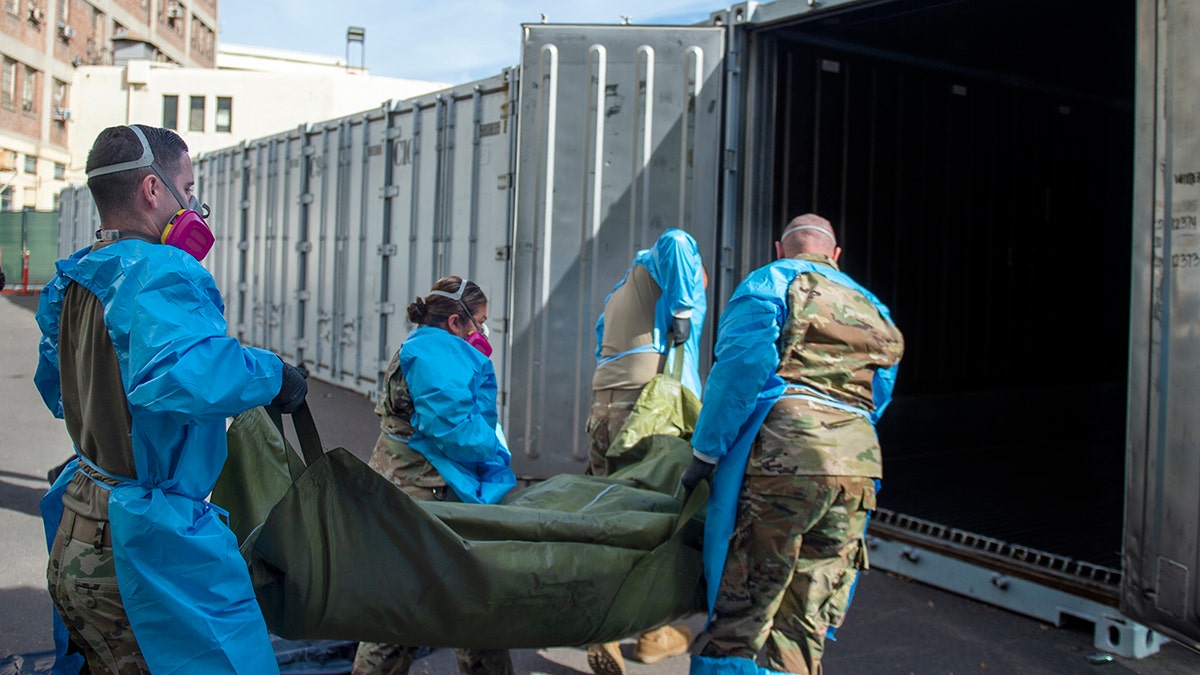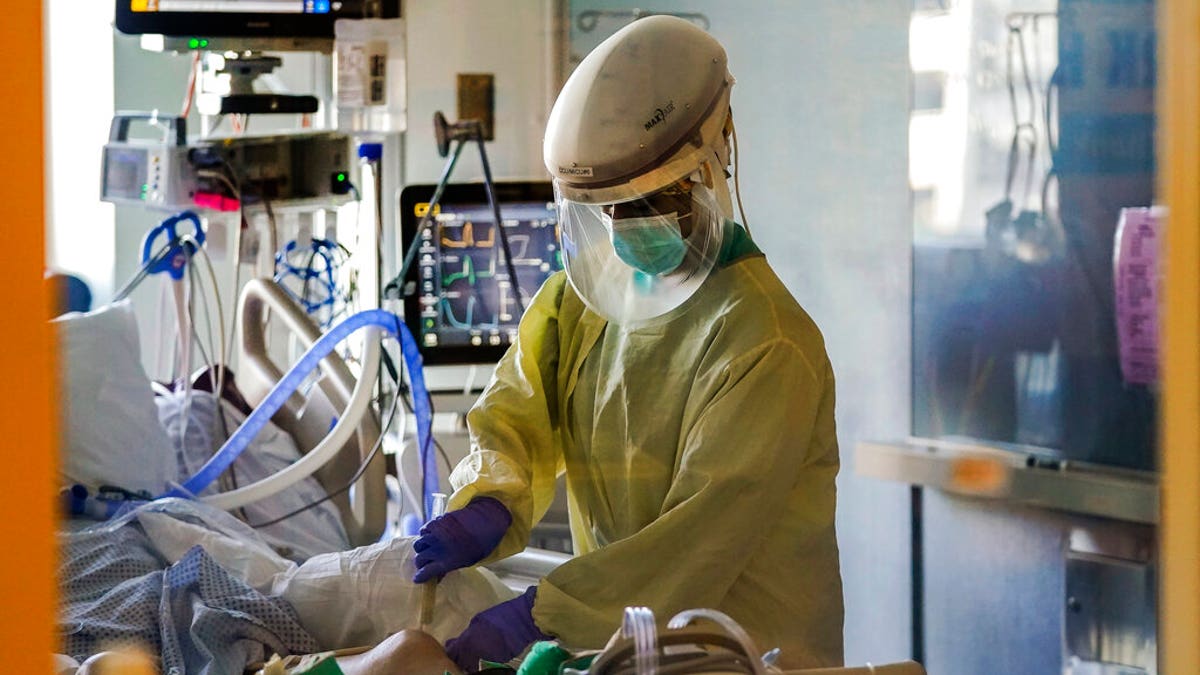Los Angeles schools to require kids to get coronavirus vaccine
Fox News medical contributor Dr. Nicole Saphier reacts to talk about requiring coronavirus vaccines for children.
Days after Los Angeles County surpassed 1 million coronavirus cases, researchers say a new local strain is likely behind the seemingly never-ending surge. The strain, identified as CAL.20C by Cedars-Sinai researchers, consists of five different mutations and is different from the variant discovered in the U.K.
According to researchers, CAL.20C has been identified in more than one-third of LA COVID-19 patients.
"The recent surge in COVID-19 positive cases in Southern California coincides with the emergence of CAL.20C," Dr. Eric Vail, assistant professor of pathology and director of molecular pathology in the Department of Pathology and Laboratory Medicine at Cedars-Sinai, said in a release posted to Cedars-Sinai's website.

In this Jan. 12, 2021 photo provided by the Los Angeles County Department of Medical Examiner-Coroner, National Guard members assist with processing COVID-19 deaths, placing them into temporary storage at the medical examiner-coroner's office in Los Angeles. ((Los Angeles County Department of Medical Examiner-Coroner via AP, File))
Vail and his fellow researchers have submitted their study on the strain to MedRxiv.org ahead of peer review. In the study, researchers noted that the strain was essentially nonexistent in the fall, but by December it was detected in 36.4% of cases.
CALIFORNIA PROBING SEPARATE CORONAVIRUS VARIANT LINKED TO LARGE COUNTY OUTBREAKS
"The double-digit prevalence of the CAL.20C strain in November and December was striking given that it was first observed in July 2020 in just one of 1,230 virus samples in Los Angeles County and had not again been detected in Southern California until October," said Jasmine Plummer, a research scientist at the Cedars-Sinai Center for Bioinformatics and Functional Genomics, associate director of the Applied Genomics, Computation & Translational Core at Cedars-Sinai and the other co-corresponding author, according to the Cedars-Sinai website.
Outside of LA, it was also detected in patient samples from New York, Washington D.C., and Oceania.
LOS ANGELES LIFTS AIR-QUALITY LIMITS FOR CREMATIONS
The strain’s five different mutations include L452R, which was identified by the California Department of Public Health. The L452R variant is increasingly being discovered in California counties and has been identified in "several large outbreaks" in Santa Clara County. The county’s health officer called the variant a "red flag" that must be investigated further in a statement released over the weekend.

In this Wednesday, Jan. 13, 2021 file photo, a health care worker tends to a COVID-19 patient in the intensive care unit at Santa Clara Valley Medical Center during the coronavirus pandemic in San Jose, Calif. ((AP Photo/Jeff Chiu, File))
"This virus continues to mutate and adapt, and we cannot let down our guard," Dr. Sandra Cody said. "This news underscores the need for everyone to follow all prevention measures and get vaccinated as soon as they are offered the vaccine."
While it’s not clear what impact these mutations may have on virus transmissibility or effectiveness of current COVID-19 treatments and vaccines, researchers said the discovery is imperative to ongoing research.
CLICK HERE FOR COMPLETE CORONAVIRUS COVERAGE
"The identification of this novel strain of SARS-CoV-2, like strains arising in Britain and South Africa, is highly significant to frontline and global surveillance of the constantly evolving COVID-19 pandemic," said Dr. Jeffrey Golden, vice dean of research and graduate education and director of the Burns and Allen Research Institute at Cedars-Sinai. "We are delighted that the California Department of Public Health was able to use our data to also identify one of the variants included in this new strain. The pioneering research of our Cedars-Sinai investigators is part of our ongoing drive to discover new ways to identify, treat and prevent COVID-19."

